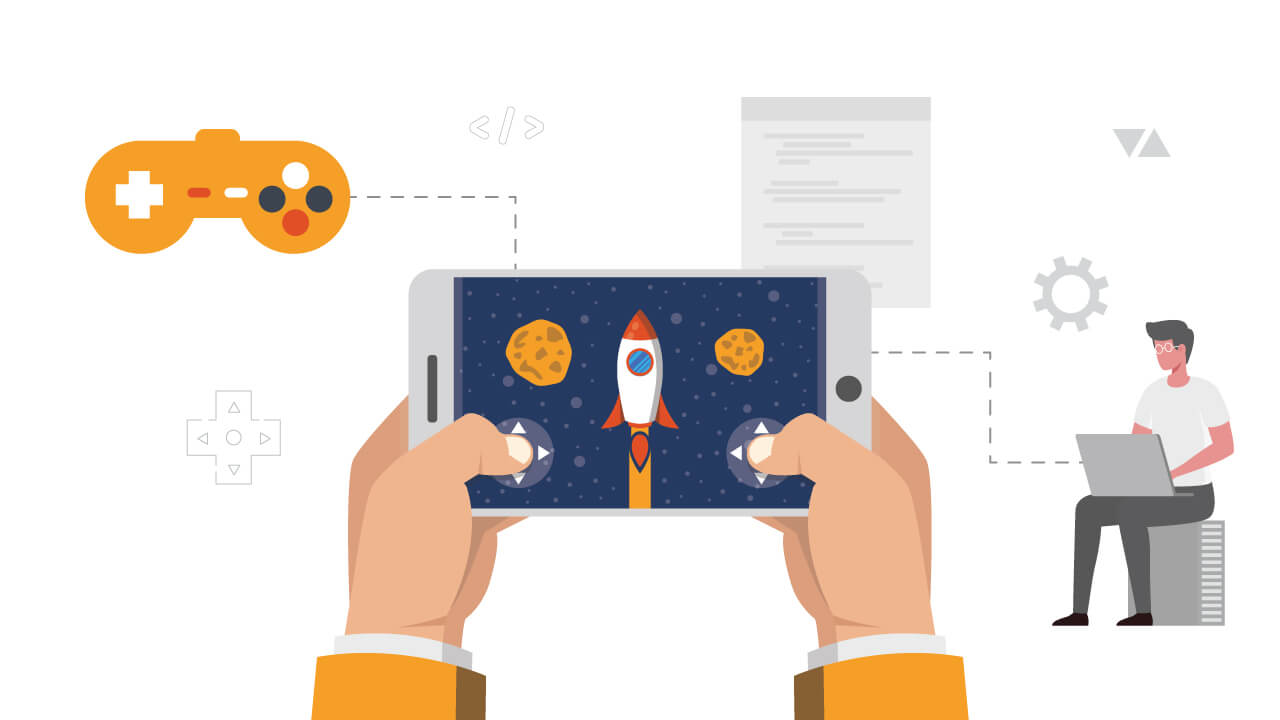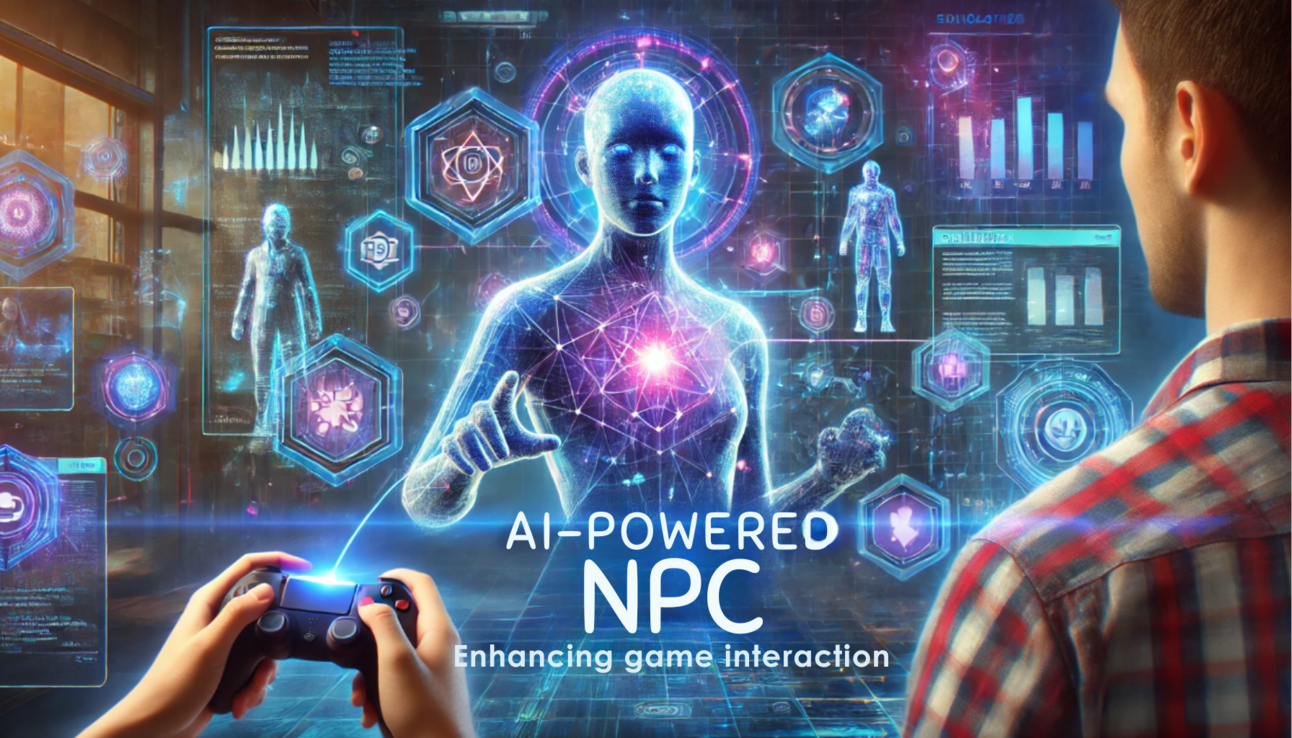How to Use AI in Game Development
Artificial Intelligence (AI) is reshaping the landscape of game development. From creating lifelike non-playable characters (NPCs) to generating procedural content, AI has become an essential tool that helps developers craft more immersive and dynamic experiences. Whether you’re a solo indie developer or part of a large team, AI can enhance various aspects of your game, streamline production, and bring fresh innovation to gameplay.In this article, we’ll explore how AI can be effectively utilized in game development, including NPC behaviors, procedural content generation, and game testing, as well as some challenges developers might face.
AI for NPC Behavior and Interaction
One of the most visible ways AI impacts game development is in creating more intelligent, reactive NPCs. In early games, NPCs often followed rigid patterns, with limited capacity to respond dynamically to player actions. Today, AI enables NPCs to make decisions based on complex algorithms, mimicking real-world behavior.
Dynamic Decision-Making
AI-driven NPCs can adapt to player behavior in real-time. Instead of following a static set of rules, these NPCs can assess their surroundings, react to threats, or engage with players based on the context. This makes the game world feel more alive and responsive.For instance, in a stealth game, an AI-controlled enemy might notice if an object has been moved or if there are unusual sounds nearby, prompting it to investigate. In a game like The Elder Scrolls V: Skyrim, NPCs have unique behaviors and routines, making the game world feel dynamic and immersive. As AI improves, players can expect even more complex interactions with characters and enemies.
Procedural Content Generation
Another area where AI excels is in procedural content generation. AI can be used to automatically generate levels, maps, or even entire worlds, ensuring that no two playthroughs are the same. This not only saves development time but also adds depth and replayability to games.
World Building
Procedural content generation is especially beneficial in open-world or sandbox games, where the environment plays a crucial role. Games like Minecraft use AI algorithms to generate entire worlds, filled with unique landscapes, resources, and biomes. With AI, developers can create expansive and varied environments without having to manually design each area, allowing for more exploration and player engagement.
Story and Dialogue Generation
AI can also assist with procedural storytelling and dialogue. Some games are experimenting with AI-driven narrative design, where plot points or dialogue trees evolve based on player choices. This creates a more personalized experience and can reduce the burden on writers by generating alternative dialogue paths on the fly.
AI in Game Testing

AI plays an increasingly important role in game testing. Traditionally, testing has been a labor-intensive process where developers manually check for bugs, glitches, and balance issues. With AI, much of this testing can be automated, allowing for faster iterations and more thorough quality assurance.
Automated Playtesting
AI can be programmed to "play" the game in different ways, simulating how real players might interact with it. These AI agents can run through hundreds or thousands of test cases, checking for bugs, crashes, or balance issues that might be overlooked by human testers. This is particularly useful in large-scale games, where manually testing every possible interaction would be nearly impossible.
Performance Optimization
AI-driven testing can also be used to optimize game performance. By analyzing gameplay data, AI can identify areas where the game may be lagging or experiencing framerate drops, helping developers improve the overall performance of the game.
https://fun88a.com/disclaimer-fun88/
https://fun88a.com/fun88-promo/
https://fun88a.com/category/fun88-guide/
AI in Game Design
Beyond mechanics and testing, AI can also assist developers in the design process. With AI-powered tools, developers can quickly iterate on ideas and fine-tune gameplay elements. AI can analyze player behavior and suggest tweaks to improve the gaming experience.
Predictive Analytics
Using data analytics powered by AI, developers can gain insight into how players engage with their game. For instance, an AI might identify that players tend to quit after a specific level or become frustrated by a particular mechanic. With this information, developers can make data-driven decisions to enhance the game’s difficulty curve, progression, or content.
Balancing and Difficulty
AI can also help in balancing gameplay by analyzing in-game statistics and tweaking elements like enemy strength, resource allocation, or rewards. By automatically adjusting the game’s difficulty level based on player skill, AI can ensure that players are continually challenged but not overwhelmed.
Challenges and Considerations
While AI offers exciting possibilities for game development, it’s not without challenges. Implementing AI-driven systems requires a deep understanding of both game design and machine learning techniques. Additionally, there’s a risk that too much reliance on AI could lead to less creative control or unintended behaviors.
Ethical Considerations
As AI continues to advance, developers must also consider ethical issues. For example, AI-generated content might be less predictable, and if not carefully managed, could lead to imbalances or unfair advantages within the game. Ensuring that AI systems are designed with fairness and transparency in mind is essential to maintaining player trust.
Technical Limitations
AI algorithms can be resource-intensive, requiring significant processing power, which could affect the performance of the game on less powerful devices. Developers need to strike a balance between implementing advanced AI features and ensuring smooth gameplay, especially for mobile or low-end platforms. In some cases, implementing AI may require developers to make trade-offs to optimize game performance.
AI for Mobile Game Development
AI isn’t just limited to PC or console games. Mobile game developers can also take advantage of AI to enhance their projects. For instance, AI can be used to optimize game monetization strategies, analyze player behavior, and provide personalized in-game offers.Mobile developers who utilize AI can also create engaging and dynamic experiences that rival larger games. By incorporating AI, developers can keep players hooked with personalized experiences, which could also lead to increased Fun88 deposit guide usage for players in various online games and platforms like Fun88 login India.
Conclusion
AI is revolutionizing game development in countless ways, from creating smarter NPCs to generating dynamic worlds and enhancing testing efficiency. By leveraging AI tools and techniques, developers can push the boundaries of what’s possible in gaming, offering players more immersive and responsive experiences. However, as with any technology, it’s essential to approach AI with care, ensuring that it enhances, rather than diminishes, the creative vision behind the game.For developers eager to explore the possibilities of AI in game development, the future is bright, and the potential applications are nearly limitless. Whether you’re looking to streamline production, optimize player engagement, or create entirely new gaming experiences, AI has the tools to take your project to the next level.

